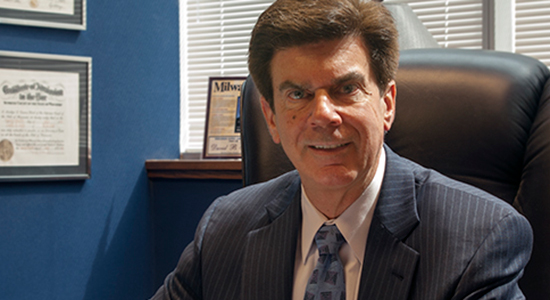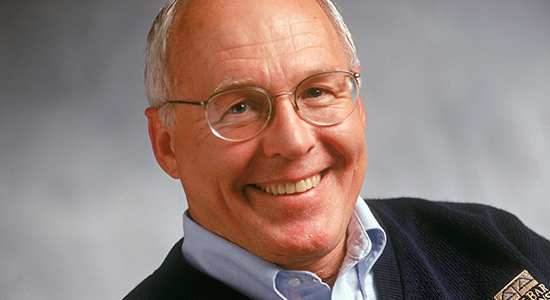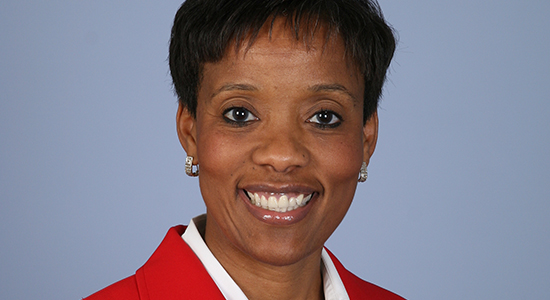Clarifying Proof of Intent to Gerrymander

In “Redistricting: Republican Maps Likely Headed to the U.S. Supreme Court” (InsideTrack, Dec. 7, 2016), Joe Forward reported on the three-judge-panel ruling that Wisconsin Republican lawmakers passed an unconstitutional partisan gerrymander in 2011.
Forward wrote, “Now that a panel of federal judges has ruled that Wisconsin Republican lawmakers enacted an unconstitutional redistricting plan, the case will likely head to the U.S. Supreme Court, which could be in line to issue a landmark and far-reaching decision on the issue of partisan gerrymandering.” He explained the decision and the panel majority’s application of a new test that could be used in all political gerrymandering cases to determine whether a map is unconstitutional.
A reader clarified the method of proving intent to gerrymander.
Reader: Nice work summarizing this thick subject-matter. As one of the plaintiffs, I attended the four-day trial and most other hearings and gatherings about this case. I would like to clarify your sentence: “A plaintiff would have to prove intent to gerrymander for partisan advantage, as well as partisan effect, through a new measure called the ‘efficiency gap.’”
The court did not adopt the efficiency gap as the method for proving intent and effect, but found it to be persuasive evidence of the intent and effect. The key seems to be the durability of the effect, which is shown by the measure (efficiency gap) and the results (two election cycles).
(The court denied supplementing the record with the 2016 results, but they confirm durability again.)
Wendy Johnson
Klemish & Johnson LLC, Eau Claire
We Want to Hear from You! Submit a Letter to the Editor
Wisconsin Lawyer provides a forum for members to express ideas, concerns, and opinions on law-related subjects. Send comments to wislawyer@wisbar.org (include “Letters” in the subject line), or mail to Wisconsin Lawyer “Letters,” P.O. Box 7158, Madison, WI 53707-7158. Limit to 500 words. Writing guidelines available.
Connect With Us: Post comments to articles
online, and find us on Facebook, Twitter, and LinkedIn.
Rising Above the Rules of Professional Conduct: My Take

The Rules of Professional Conduct for Attorneys set forth the minimum standards that all lawyers must abide by. In practice, lawyers should set their own guidelines that go beyond what is required by the SCR rules. I am happy to share some of my own personal ethics as they apply to the practice of law, which appeared in a recent issue of the Wisconsin Journal of Family Law, published by the State Bar’s Family Law Section.
-
Practice with integrity and treat every client as if they were a close family member or good friend.
-
Practice with the highest professionalism so other attorneys and the courts will respect you.
-
Practice with care and passion in what you do. We are in a position of trust with the public. Don’t forget that it is a privilege and honor to be an attorney.
-
Be prepared with your case. Know your case inside and out, including the facts, the issues, the evidence, and the law.
-
Always be on time for court. Don’t ever make the court wait for you.
-
Give something back to the community, whether it is volunteering at one of the free legal clinics, taking on a pro bono case, or writing an article on an important legal topic that may be of importance to the public.
-
Try to view the case from both sides, not just the side you are on. A good lawyer is someone who advocates for their client; a great lawyer is one who can view and understand the other side’s position.
-
No matter how rudely others may treat you, treat everyone with respect, including the opposing party. You never know who your next referral may be coming from.
David B. Karp
Karp & Iancu S.C., Milwaukee
Status Quo Is Not the Answer

As former State Bar President Gary Bakke of Bakke Norman, New Richmond, urged, Wisconsin legal innovators are developing solutions to challenges facing the profession, turning challenges into opportunities.
In “Gary Bakke Was Right” (Wisconsin Lawyer, Nov. 2016), State Bar Executive Director George Brown wrote that approximately 15 years ago, then State Bar President Gary Bakke declared that “the status quo is not the answer.” It was his effort to wake up the profession to the many changes affecting it.
A reader posted a comment.
Reader: If you only knew how many times my partners and I have made that statement – sometimes with a grimace, usually with a smile!
Timothy J. O’Brien
Bakke Norman, New Richmond
Join the ABA in Working for the Profession, Public

I have been working within the American Bar Association for a long time now, yet I am still amazed by the breadth and depth of the ABA’s work. As the largest professional organization for lawyers in the world, the ABA works to improve the quality of legal education; drafts model rules and standards for professional conduct of lawyers and judges; and provides ways to help lawyers practice ethically and competently. The ABA advocates for the profession and the public, just like the State Bar of Wisconsin.
Our profession faces a number of challenges and the ABA is working to find solutions. The ABA House of Delegates, the association’s policy-making body made up of delegates from local and state bars, has developed policies to address questions like:
-
How should the next generation of lawyers be educated?
-
Where is the appropriate balance in the model rules of professional conduct between client protection and the ability of lawyers to compete with nonlawyer providers of legal services?
-
Can lawyers use technology to better serve clients and those who cannot afford legal representation?
-
Is our profession welcoming and supportive to all who seek to become lawyers or use legal services?
Beyond policy, ABA sections and committees actively provide programming and guidance to assist lawyers in their practice and address the ever-changing nature of legal practice. The ABA routinely works with state bars to address these pressing issues facing our profession. The ABA speaks on behalf of the profession, by advocating before Congress and federal agencies on issues such as the need for a strong attorney-client privilege and the right to effective assistance of counsel. Many critical functions of our democracy and legal system are preserved through the work of lawyers active in the ABA.
I’m not sure exactly what is to come over the next four years as I serve the ABA as Treasurer-elect and then Treasurer, but I do know that when lawyers come together they can solve problems and implement solutions to help the profession and the public. Working for the profession and the public is important. If not us, who? If you are already a member of the ABA, thank you. If you are not currently a member, I invite you to join me and the thousands of lawyers across the country in the ABA’s work. Learn what is new at the ABA. I want to make sure that the ABA membership includes the entire spectrum of lawyers: large firm, small firm, solos, government, public interest, big city, and rural practitioners.
If you are not currently a member, you can join now and receive a 50 percent discount in dues through August 2017. Visit americanbar.org/friendsofbehnke or call (800) 285-2221 and use the code Behnke17. The ABA needs you, and I hope you will join me in working for the profession and the public through the ABA.
Michelle A. Behnke
Michelle Behnke & Associates, Madison
